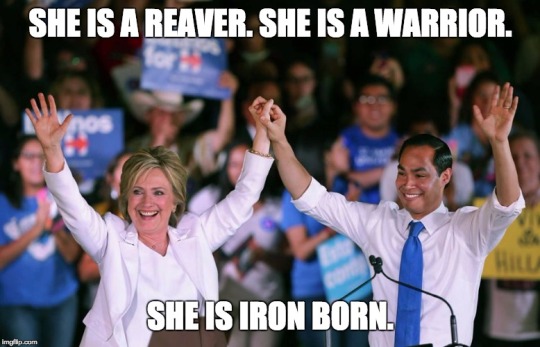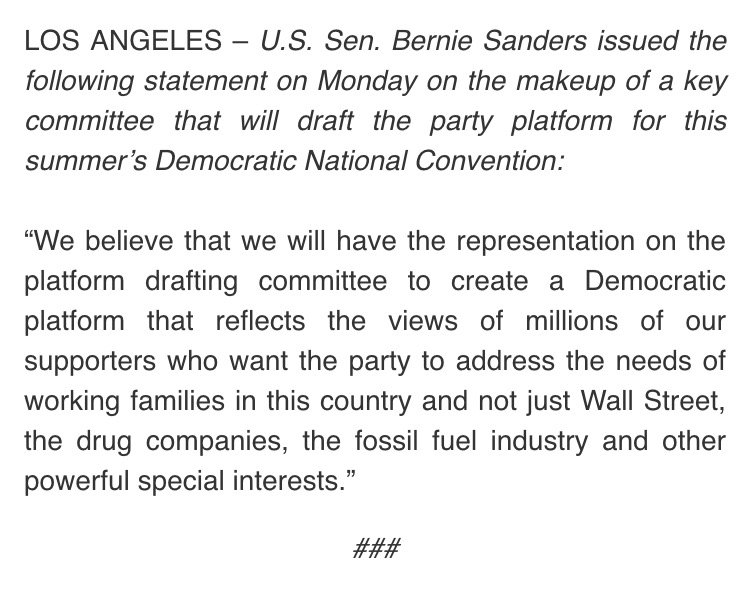I mean, this is obviously an otherworld hypothetical, but I'm still confident you're talking total nonsense right now if you think that under a proportional system that a more leftwing party wouldn't talk votes away from the Democrats. People strongly dislike the established parties, it is implausible to suppose they would continue to vote for them in the same numbers given an alternative choice.
So, your reply is "well, if you got 49%, just get 51% next time", which sure, is true, but kind of misses the point. You shouldn't have to get 51% of the vote just to have influence; that's not a healthy political system. You ought to see a compromise, where, say, a 10% candidate, a 40% candidate, and a 50% candidate get to influence 10%, 40%, and 50% of the eventual platform - which is exactly what does happen in systems which have executive coalitions, and there's a long history of it working exactly this way. That creates a healthier democracy.
I mean, he has multiple forms of leverage. One is threatening to run as an independent, one is refusing to endorse, one is threatening to drag this out as long as possible, etc. Each has different degrees of credibility. I think Clinton is most worried by the second; if you were right and it were the third, he'd have conceded now he has made his bargain, and he hasn't. So I don't think the evidence supports you on this one.










